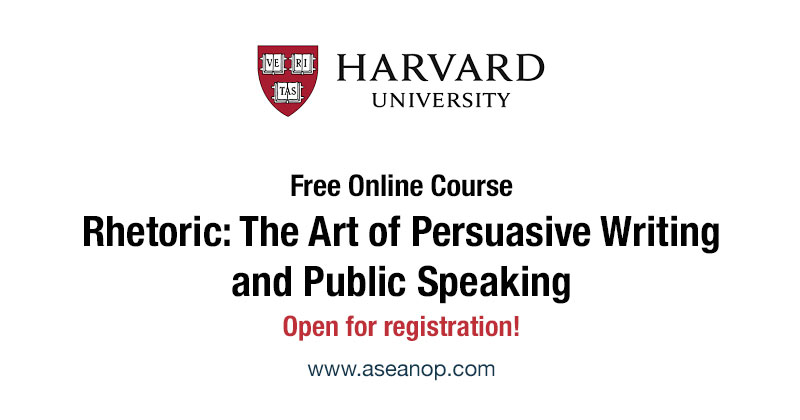
Washington State grants may be available to Washington residents who are interested in attending college. These grants help Washington residents to pay college expenses without taking out student loans. The grants are offered by the Washington State Achievement Council, and are intended to make higher education more affordable for Washington residents.
There are several different types of scholarships and grants that Washington residents can apply for. There are both general scholarships that are available to all residents who meet the eligibility criteria, and specific career-specific financial assistance programs. These programs include scholarships and loans, which can be used to pay for tuition, books, and other educational expenses.
Washington State College Grants are available to Washington residents in high financial need. These awards can range from $500 to 10,000 per year. All grants are subject to satisfactory academic progress. The student must be full-time enrolled in Washington schools in order to qualify. The grant cannot be guaranteed. There is a maximum limit of 15 full-time quarters.

Washington State Opportunity Grants is for students from low-income households. This grant is for low-income students who are interested in training for high-demand careers. This grant provides up to $1000 in funding to purchase books. These grants are available to students who are attending a state university, community college, or technical college in Washington.
Native American students can apply for the American Indian Endowed Scholarship. The applicant must be a Washington resident, and have strong cultural or social ties to the American Indian community. Applicants must submit transcripts from their previous five years of schooling. They will also be asked to write an essay about how they will use their education to benefit the Indian community. The awards are renewable for up five years.
The Washington Work-Study Program is one of 13 state-based work-study programs. Participants will be offered a job with an employer who is approved for the program. Students must be enrolled full-time in a low income program or a federally subsidized program.
Washington grants and scholarships are available to high school students. These scholarships are meant to aid students who are struggling financially, are from low-income homes, or come from underrepresented communities in the state's workforce. The student's academic record, financial need, and other factors will be considered when determining the scholarship award. To apply, students must meet certain requirements. This includes receiving school lunches at no or reduced prices.

Washington residents have many other scholarships and grants available, including those for children of police officers, highway workers, or foster care youth. Passport to College Promise Scholarships are also offered by the scholarship program. The scholarship can be used to pay college tuition, housing, transportation and personal expenses, such as clothing. The scholarship is available only to Washington State residents. It requires half-time enrollment before the student turns 22.
FAQ
What is early education for children?
Early Childhood Education is a field devoted to helping children develop into healthy, happy adults. This includes teaching children how to read and preparing them for kindergarten.
The goal of early childhood education is to help kids learn and grow by providing them with age-appropriate experiences.
Early childhood educators often have to assess each child's developmental needs. This helps to decide if a particular program would benefit each child.
Parents can interact with teachers and professionals who have had experience working with young kids through early childhood programs.
As parents, they play a vital role in early childhood education. They need to be able to provide guidance and support for their children, and they must also know how to care for them properly.
Parents are also welcome to participate in activities to help their children learn skills they will use throughout their lives.
Early childhood education is sometimes referred to as preschool education, although this term is used interchangeably with daycare centers. Prekindergarten education starts around three years ago, and early childhood education is similar.
How do you apply to college?
There are many options available for how to apply to college. Reach out to your high school guidance counselor, admissions representative or for more information. Many high schools offer online applications. You can also reach out to local colleges directly. Most colleges accept applications online through their websites.
You can apply by mail, but you will need to complete the application and write a personal essay. Also, send copies of any required documents. This personal statement allows you to describe why you choose to attend this institution and the benefits it could bring to your life. It also helps the admissions committee understand your goals and motivations.
You can find sample essays that you can download from our website.
Are there any special skills needed for my chosen field?
To become a lawyer you will need good writing skills. If you want to be a nurse, you must be able to communicate well with patients. You will need to be able to use math skills to become an accountant. These are just a few of the many examples. Think about all the things you enjoy doing. What type of job can you do to keep doing what you love? If you want to be an engineer, you'll need to learn how to design structures and machines. To be successful in this area, you'll also need to understand basic math. Business success requires a solid understanding of statistics and numbers. If you want to pursue a career as a teacher, you'll need good communication skills. You will need to be able teach and assist others.
What is homeschooling?
Homeschooling allows children to be educated at their own home by their parents. It can also be called homeschooling, self-education and private education.
Family members who want to teach their children at home can opt for homeschooling. This method allows them to receive a quality education without leaving the comfort of their own home.
They educate their children right from birth through high school. They decide on the subjects they want to study and how much time each subject should take. The student learns everything on his/her own time.
When to start teaching children is up to the parents. Many schools recommend children attend classes starting at the age of four or five. However, some families prefer to wait until their children are in kindergarten before they start teaching.
Parents can use any number or resources to assist them in learning the curriculum. You can learn valuable lessons from books, videos, websites and magazines.
Many families find that homeschooling works well with their busy schedules. It allows parents to spend more quality time with their children than traditional public schools.
Statistics
- Among STEM majors, that number is 83.5 percent. (bostonreview.net)
- And, within ten years of graduation, 44.1 percent of 1993 humanities graduates had written to public officials, compared to 30.1 percent of STEM majors. (bostonreview.net)
- “Children of homeowners are 116% more likely to graduate from college than children of renters of the same age, race, and income. (habitatbroward.org)
- They are also 25% more likely to graduate from high school and have higher math and reading scores, with fewer behavioral problems,” according to research at the University of Tennessee. (habitatbroward.org)
- In most developed countries, a high proportion of the population (up to 50%) now enters higher education at some time in their lives. (en.wikipedia.org)
External Links
How To
Why homeschool?
There are many things to take into consideration when making the decision to homeschool your child or send him to school.
-
What kind of education do your children need? Are you looking for academic excellence or social skills development?
-
What level of involvement do you desire to have in your child's education and learning? Are you interested in keeping up with what your child does? Would you prefer to be informed about your child's activities? Or would it be better for you to let them make their own decisions?
-
Is your child a special needs child? Do your children have special needs?
-
Are you able to manage the schedule of your child? Are you able to commit to teaching your child at-home every day?
-
What subjects are you going to cover? Math, science, language arts, art, music, history, geography, etc. ?
-
What amount of money are you able to spend on your child's education?
-
Is your child able to go to school?
-
What is the best place to house your child? This means finding enough space to accommodate a classroom, and providing sufficient facilities such as bathrooms.
-
What is your child's age?
-
When does your child go back to sleep?
-
When does he/she wake-up?
-
How long does it take for you to get from A to B?
-
Is your child's primary school close to you?
-
How far is your home from your child's school?
-
How will you transport your child between school and home?
-
What are some of these benefits?
-
What are the disadvantages?
-
Who will watch your child while he/she's outside?
-
What are your expectations for your child?
-
What kind of discipline will you use?
-
Which curriculum will you use for your studies?
There are many reasons people choose to homeschool their kids. Some of these reasons are:
-
Your child may have learning disabilities that prohibit him/her attending traditional schools.
-
You would like to offer your child an alternative educational system.
-
You require more flexibility in your scheduling.
-
You don't want to pay high tuition fees.
-
You think your child is receiving a better education in this school than you would receive in a traditional setting.
-
You believe you can teach your children better than any teacher in a traditional school setting.
-
You don't like how the school system works.
-
The school system's rules and regulations make you feel uncomfortable.
-
You want your child to develop a strong work ethic.
-
You want your child's freedom to choose the courses they take.
-
Your child deserves individual attention.
Another benefit of homeschooling is:
-
It is not necessary to worry about uniforms and books, pencils, pencils, paper, or other supplies.
-
You can customize your child's education according to his/her interests.
-
Homeschooling allows parents to spend time with their children.
-
Students who are homeschooled tend to learn more quickly than peers because they don't have to be distracted by their peers.
-
Homeschoolers score higher on standardized exams.
-
Homeschool families tend be happier overall.
-
Students who homeschool are less likely than others to drop out of school.